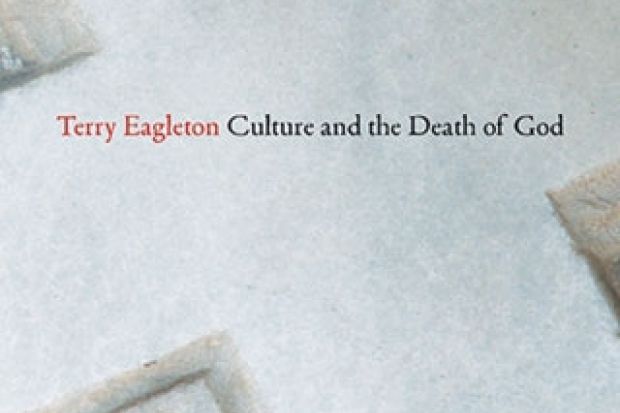Terry Eagleton’s prodigious oeuvre needs, as they say, no introduction. Ever since turning up at the University of Cambridge in 1961 to become a disloyal loyalist of Raymond Williams, he has been, by way of spectacular controversies at assorted universities and 40-odd books, the Mephistopheles of the anglophone intelligentsia. Now over 70, he remains unassimilated by the elite, untamed by success and fame, a dazzling and reckless goblin of every latest theory to be fired at the wounded, smashed-up and ponderous old battleship of Western culture.
But dazzling is as dazzling does: it leaves you unable to see clearly. In this brief enough new book, Eagleton doesn’t so much address as defy the latest crisis of the culture, and defies it to be able to do anything to fill the God-shaped hole (Salman Rushdie’s phrase in response to the fatwa) at the heart of social identity.
He speaks, of course, as every paragraph silently reminds us, as a former novitiate, and his many caricatures of atheism leave him well able to assume the rig of debonair boulevardier in a vanished Paradise. After all, as he says, the intelligentsia is cornered by an extraordinary worldwide recrudescence of religious belief, and although Eagleton characteristically sees these revivalist choirs as strictly political in significance, in summarising the 200-year-old failures of rationalism, he is wholly contemptuous of its many schools attempting to account for God, or to provide for his replacement.
To bring off this vast ambition, he scans at headlong speed a compressed history of the entire Enlightenment (this book began, as many do, as lectures – at the University of Nottingham – but it shows). G. E. Lessing, Immanuel Kant, Johann Georg Hamann, Johann Gottfried Herder and the rest of the 18th century are swept together and then all dispatched as being helpless to substitute Reason for God; David Hume is scantily commended for saying so, but is surely deserving of warmer praise for putting the “civil affections” in the God-shaped hole?
No stopping Eagleton now. Neglecting the canons of contextual historicism, he roars away into the Romantic movement, treating Matthew Arnold with surely shameful and offhand disdain, until he comes up with a jolt before the obdurate presence of Friedrich Nietzsche.
Nietzsche gets his due – as how could he not? – for naming the death of God and for anticipating Eagleton’s own conviction, voiced with his usual ringing scorn, that “culture” (whether conceived as Romantic art, liberalism’s domestic freedoms or the deliberate exigencies of Modernism’s reactionary difficulty) cannot possibly do the work of religion, and cannot repair the sheer thinness of meaning brought about by capitalism.
God may be dead to Eagleton. Marx, however, is not. But it is a marked oddity in the work of this raucous and ecstatic literalist that he retains so strong an affection (I almost wrote “faith”) for the historical Jesus. We are three times reminded of “the crucified body” at the centre of Christianity (surely one of the most revolting symbols ever to compel human activity?), and with candid relish our heretic savours Christ’s call to walk beside “the homeless, propertyless, celibate, socially marginal, friend of outcasts, scourge of the wealthy and powerful”, all of which is a bit rich coming from the Excellence in English Distinguished Visiting Professor at the University of Notre Dame as well as Distinguished Professor of English Literature at Lancaster University.
It’s nonetheless a hell of a book, exhilarating, maddening, incomparable. But it lacks more stolid virtues, is too much dashed off (as witness the careless and frequent use of the phrase “in a sense”). It fails to recognise the basic truth that all new moral theory must needs be made out of past, even antique, thoughts. Most dismaying of all to this admirer of the great man, he ignores what Wordsworth called “certain inherent and indestructible qualities of the human mind” and makes no mention of good old culture still going on, all of it, still going on, in the streets and homes and shops and gardens of all our lives.
Culture and the Death of God
By Terry Eagleton
Yale University Press, 264pp, £18.99
ISBN 9780300203998
Published 20 February 2014
Register to continue
Why register?
- Registration is free and only takes a moment
- Once registered, you can read 3 articles a month
- Sign up for our newsletter
Subscribe
Or subscribe for unlimited access to:
- Unlimited access to news, views, insights & reviews
- Digital editions
- Digital access to THE’s university and college rankings analysis
Already registered or a current subscriber?





